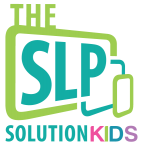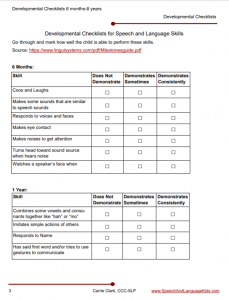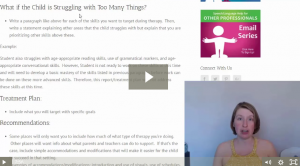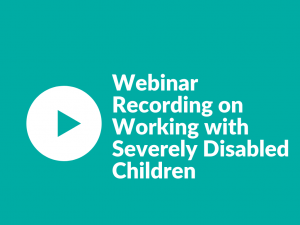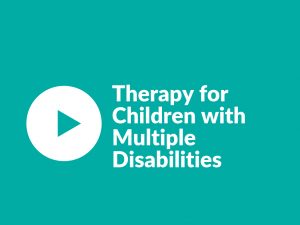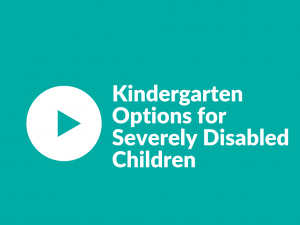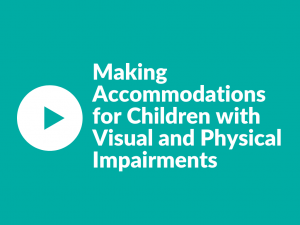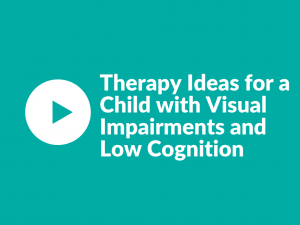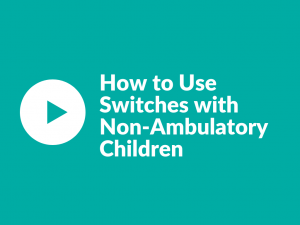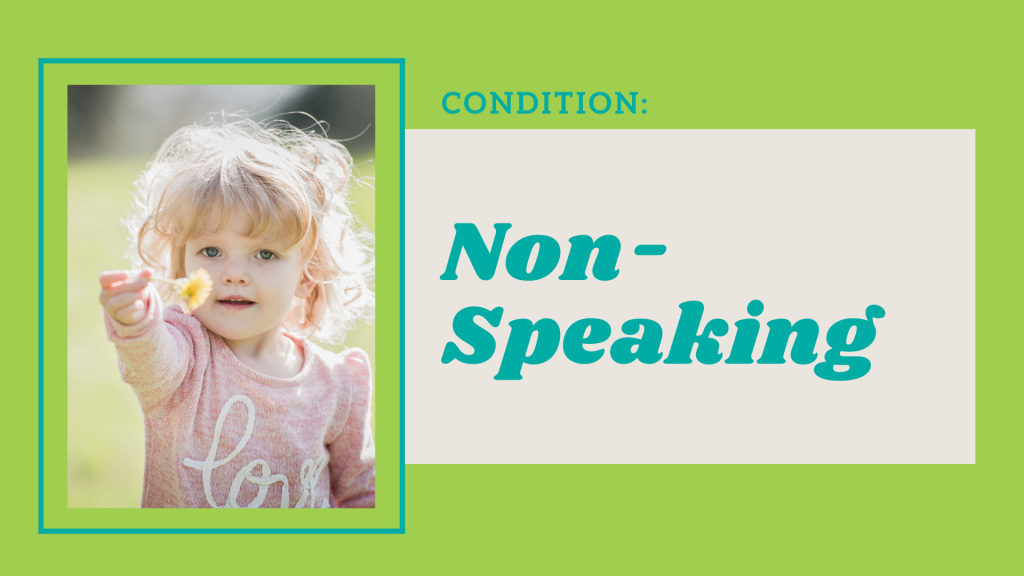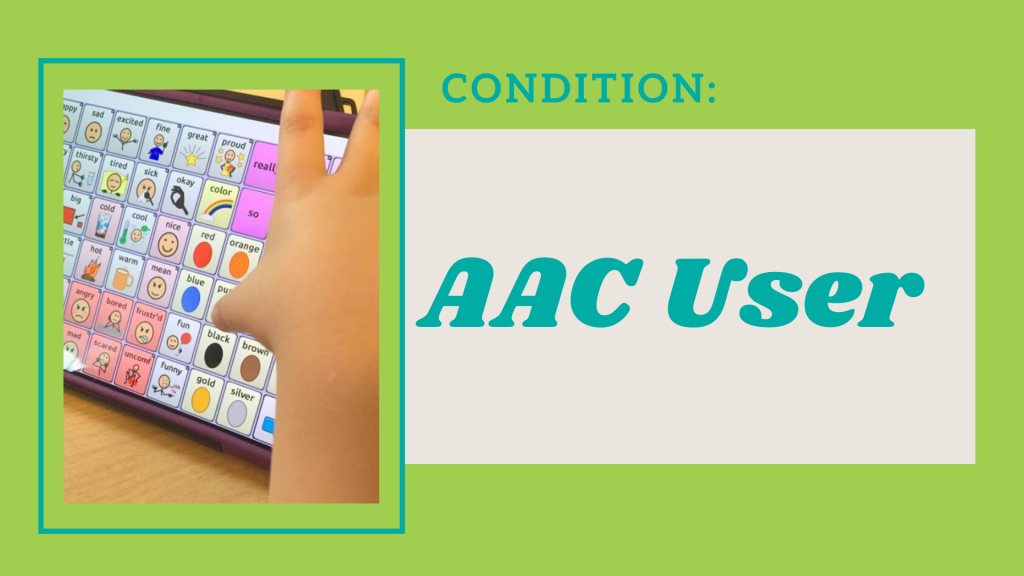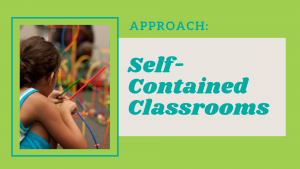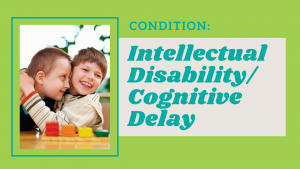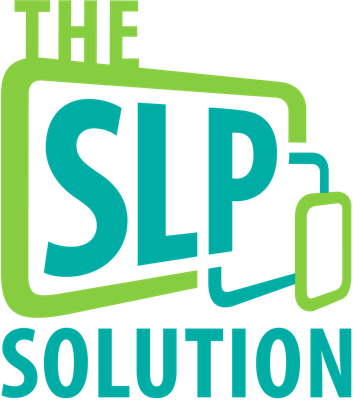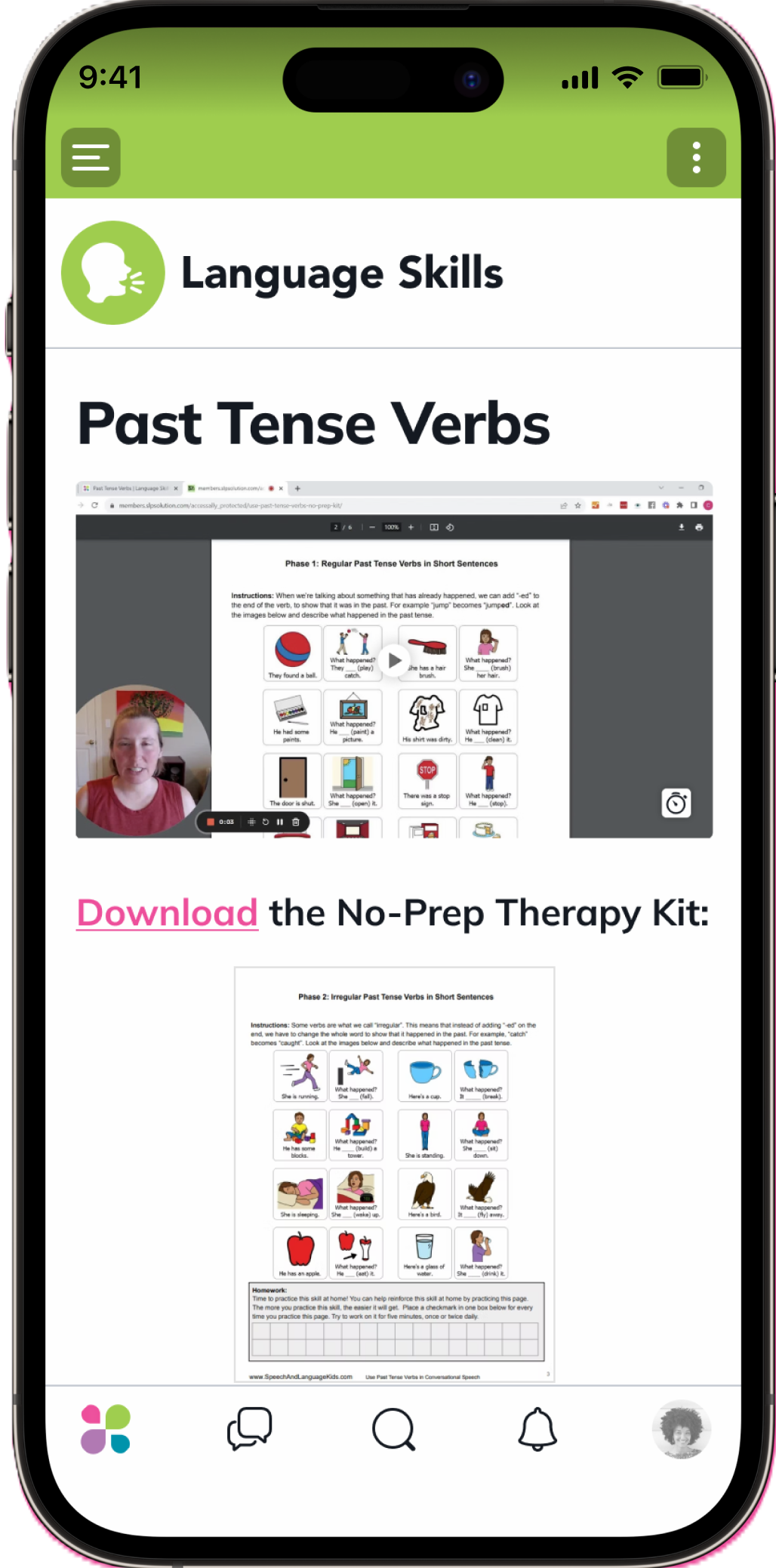Condition: Severely Disabled/Multiple Disabilities
Jump To:
Norms by Age Evaluation Suggested Goals Therapy
Definition:
Developmental Norms:
When we work with children with a lot of disabilities going on, it can be hard to know where to start and what to work on. A great place to start is to look at developmental checklists. You can look at what skills the child currently has and which ones are missing. We often need to start with skills that are far below the child’s chronological age in order to meet them where they’re at. Try working first on the earliest-developing communication skills and move up the hierarchy from there.
Here’s a list of developmental norms for a variety of communication skills:
Evaluation:
When you begin working with a child with multiple disabilities, a full communication evaluation should be conducted. A full medical history and background will be especially important with these children and all areas of communication should be considered in the evaluation. It is incredibly important to work closely with other professionals on the child’s team to get the full picture of all disabilities and limitations. Here are some additional resources that will help you with various aspects of evaluating this condition:
Report-Writing for Students with Significant Disabilities
This quick video will walk you through how to choose goals to target for children with significant disabilities and how to write your report regarding your findings.
Suggested Goals:
When working with children with severe disabilities, you’ll need to meet the child where he/she is at. Think about which communication skills would help the child the most in his/her environment. Here are some goals that may be helpful for children with multiple disabilities. You can click on one of the goals below to learn more. Or, scroll down to the therapy section for more in-depth resources and support for treating this condition.
Therapy:
Here are some more resources and information that may help you when it comes to treating this condition.
This condition page includes links to all of our resources for working with children who are not speaking.
Resources and tools for working with children who require augmentative/alternative communication (AAC).
